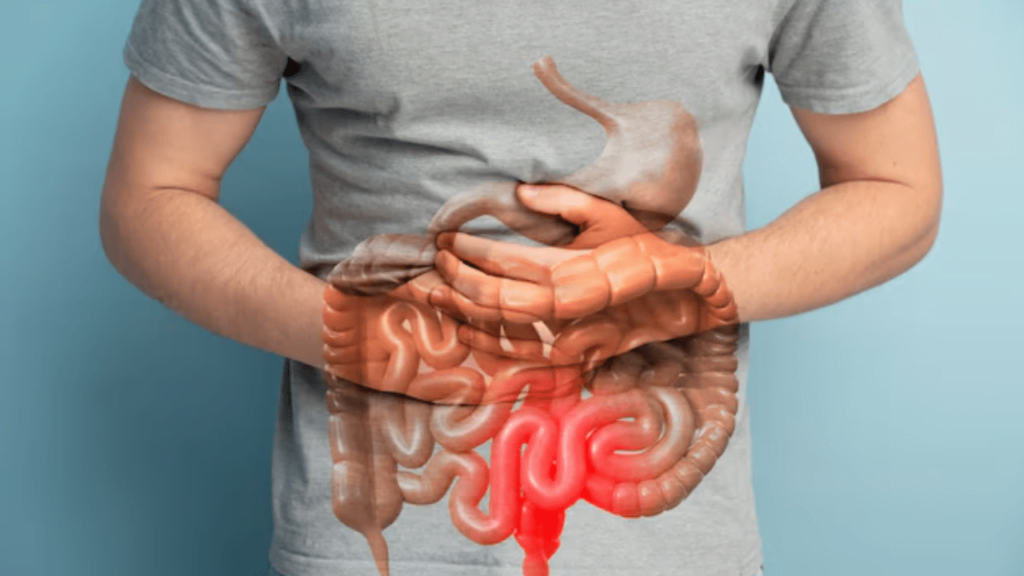Inflammatory Bowel Disease (IBD) affects over 7 million patients globally. Throughout the past 20 years, more people have received a diagnosis even though the illness is not widespread.

Inflammatory Bowel Disease (IBD) is a term primarily used to describe two chronic inflammatory conditions of the gastrointestinal (GI) tract: Crohn’s disease and ulcerative colitis. These conditions significantly impact the quality of life of those affected, causing symptoms such as severe abdominal pain, diarrhea, fatigue, and weight loss. Despite being a prevalent health issue, IBD is often misunderstood.
This blog aims to provide a detailed understanding of IBD, its symptoms, causes, diagnosis, treatment options, and lifestyle management strategies.
What is Inflammatory Bowel Disease?
Inflammatory Bowel Disease is an umbrella term for chronic inflammatory conditions affecting the digestive tract. Two main types of IBD are:
- Crohn’s Disease: This can affect any part of the GI tract from the mouth to the anus but most commonly affects the end of the small intestine (ileum) and the beginning of the colon. It is characterized by inflammation that can penetrate deep into the layers of the affected bowel tissue.
- Ulcerative Colitis: This condition primarily affects the colon (large intestine) and the rectum. Inflammation occurs only in the innermost lining of the colon and rectum, resulting in ulcers (sores).
Symptoms of Inflammatory Bowel Disease
The symptoms of IBD can vary significantly from person to person and can range from mild to severe. Common symptoms include:
- Abdominal Pain and Cramping: This is often due to inflammation and ulceration of the GI tract.
- Chronic Diarrhea: This can be bloody, especially in cases of ulcerative colitis.
- Fatigue: Persistent tiredness and lack of energy are common in IBD patients.
- Weight Loss: Due to malabsorption of nutrients and loss of appetite.
- Rectal Bleeding: Especially in ulcerative colitis.
- Reduced Appetite: Often caused by nausea and pain.
- Urgent Need to Defecate: Sometimes leading to accidents.
- Fever: May occur during flare-ups.
- Joint Pain and Inflammation: Extraintestinal manifestations.
Causes and Risk Factors
The exact cause of IBD is unknown, but it is believed to result from a combination of factors:
- Genetic Predisposition: IBD tends to run in families, suggesting a genetic component.
- Immune System Response: An abnormal immune response may cause the body to attack the cells in the digestive tract.
- Environmental Factors: Certain environmental factors, such as diet, smoking, and stress, may trigger or exacerbate the condition.
- Microbiome Imbalance: An imbalance in the gut bacteria might play a role in the development of IBD.
Diagnosis of Inflammatory Bowel Disease
Diagnosing IBD involves a combination of tests and procedures to confirm the condition and distinguish between Crohn’s disease and ulcerative colitis. Common diagnostic methods include:
- Blood Tests: To check for anemia or signs of infection.
- Stool Tests: To detect blood or pathogens.
- Endoscopic Procedures: Colonoscopy or sigmoidoscopy to visualize the colon and take biopsies.
- Imaging Tests: CT scans or MRIs to obtain detailed images of the bowel.
- Capsule Endoscopy: Swallowing a capsule with a camera to take pictures of the small intestine.

Treatment Options for Inflammatory Bowel Disease
The treatment for IBD aims to reduce inflammation, manage symptoms, and achieve and maintain remission. Treatment options include:
- Medications:
- Anti-Inflammatory Drugs: Such as aminosalicylates and corticosteroids.
- Immune System Suppressors: Such as azathioprine and methotrexate.
- Biologics: Such as infliximab and adalimumab.
- Antibiotics: For infections.
- Antidiarrheals and Pain Relievers: To manage symptoms.
- Diet and Nutrition:
- Special Diets: Tailored to individual needs.
- Nutritional Supplements: To address deficiencies.
- Enteral Nutrition: Liquid diets to rest the bowel.
- Surgery:
- Resection: Removing diseased portions of the bowel.
- Strictureplasty: Widening narrowed sections of the bowel.
- Proctocolectomy: Removal of the colon and rectum, often followed by ileostomy or J-pouch creation.
Living with Inflammatory Bowel Disease
Managing IBD involves more than just medical treatment. Lifestyle changes and self-care strategies play a crucial role in improving quality of life:
- Diet and Nutrition:
- Identify Trigger Foods: Common triggers include dairy, spicy foods, alcohol, and caffeine.
- Balanced Diet: Prioritize a diet high in healthy grains, fruits, and vegetables as well as lean proteins.
- Stay Hydrated: Drink plenty of fluids, especially during flare-ups.
- Stress Management:
- Practice Relaxation Techniques: Yoga, meditation, and deep breathing exercises.
- Regular Exercise: Helps reduce stress and improve overall health.
- Support Groups: Joining IBD support groups can provide emotional support and practical advice.
- Routine Medical Care:
- Regular Check-Ups: Monitor the condition and adjust treatment as necessary.
- Vaccinations: Stay up-to-date with vaccinations, as some medications can weaken the immune system.
- Education and Advocacy:
- Stay Informed: Keep up with the latest research and treatment options.
- Advocate for Yourself: Be proactive in your healthcare and communicate openly with your healthcare team.
Inflammatory Bowel Disease in Children
Children can also be affected by IBD, which can impact their growth and development. Symptoms in children are similar to those in adults but may also include delayed growth and puberty. Managing IBD in children requires a comprehensive approach that includes medical treatment, nutritional support, and psychosocial care.
Research and Future Directions
Ongoing research aims to better understand the causes of IBD and develop more effective treatments. Areas of focus include:
- Genetic Research: Identifying specific genes associated with IBD.
- Microbiome Studies: Understanding the role of gut bacteria in IBD.
- New Medications: Developing more targeted therapies with fewer side effects.
- Stem Cell Therapy: Exploring the potential of stem cells to repair damaged tissues.
Conclusion
Inflammatory Bowel Disease (IBD) is a chronic illness that requires lifelong care. While there is no cure, advancements in medical treatments and lifestyle modifications can help individuals with IBD lead fulfilling lives. By staying informed, working closely with healthcare providers, and adopting a proactive approach to health, those with IBD can manage their symptoms and improve their quality of life.
Call to Action
If you or a loved one are experiencing symptoms of IBD, consult with a healthcare professional for a proper diagnosis and treatment plan. Joining support groups and staying informed about the latest research can also provide valuable resources and support in managing this condition.
Read Next:

The Psychology of Love: Why Valentines Day Matters More Epic Than You Think
Discover the psychology of love and why Valentines Day is more important than you think. Learn how love impacts the brain, strengthens relationships, and boosts

Premier League Highlights: Arsenal Humiliate Man City 5-1, Spurs and Palace Secure Crucial Wins
Arsenal demolished Manchester City 5-1 in a statement premier league highlights win, reigniting their title hopes. Meanwhile, Crystal Palace stunned Man United 2-0, and Tottenham

How Budget 2025 Impacts the Indian Middle-Class: Major Tax Benefits and Glaring Omissions
Budget 2025 offers major tax relief to the middle class, including zero tax on incomes up to ₹12 lakh. However, it misses out on incentives
